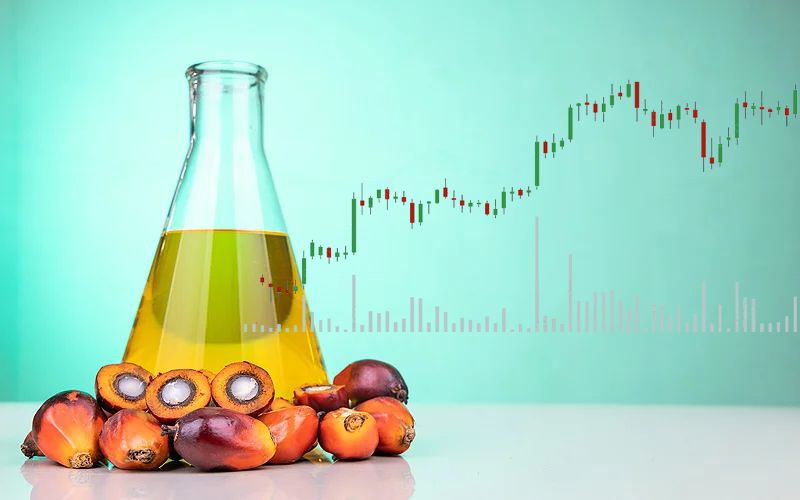Palm firms on stronger rival oils but poor demand limits gains

Malaysian palm oil futures ticked up on Tuesday after range-bound trade, supported by strength in rival edible oils, although poor demand and expectations of declining production kept the contract near a two-week low.
The benchmark palm oil contract for February delivery on the Bursa Malaysia Derivatives Exchange rose 5 ringgit, or 0.13%, to 3,896 ringgit ($834.26) per metric ton at closing.
The contract opened higher but was quickly seen retracing in negative territory as the absence of fresh buying continued to hurt overall sentiment, said Anilkumar Bagani, research head at Sunvin Group, a Mumbai-based vegetable oil brokerage.
Range-bound trading was induced by the view that production could fall month-on-month by 5% to 8%, said Marcello Cultrera of Singapore-based Apricus.
In related oils, Dalian’s most-active soyoil contract rose 1.01%, while its palm oil contract ticked up 0.77%. Soyoil prices on the Chicago Board of Trade were up 0.78%.
Palm oil is affected by price movements in related oils as they compete for a share in the global vegetable oils market.
The ringgit rose 0.19% against the dollar, making the commodity more expensive for buyers holding foreign currency.
Oil prices rose on Tuesday with the Brent benchmark rising above $80 a barrel, supported by expectations that the OPEC+ producer group may deepen and extend output cuts due to concern over softer global demand.
Stronger crude oil futures make palm a more attractive option for biodiesel feedstock.
Read also
Wheat in Southern Brazil Impacted by Dry Weather and Frosts
Oilseed Industry. Leaders and Strategies in the Times of a Great Change
Black Sea & Danube Region: Oilseed and Vegoil Markets Within Ongoing Transfor...
Serbia. The drought will cause extremely high losses for farmers this year
2023/24 Safrinha Corn in Brazil 91% Harvested
Write to us
Our manager will contact you soon



